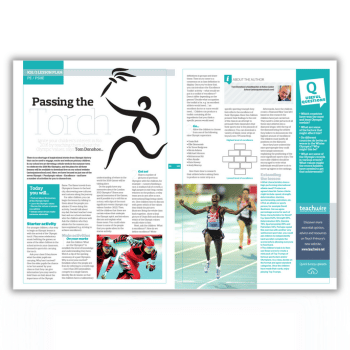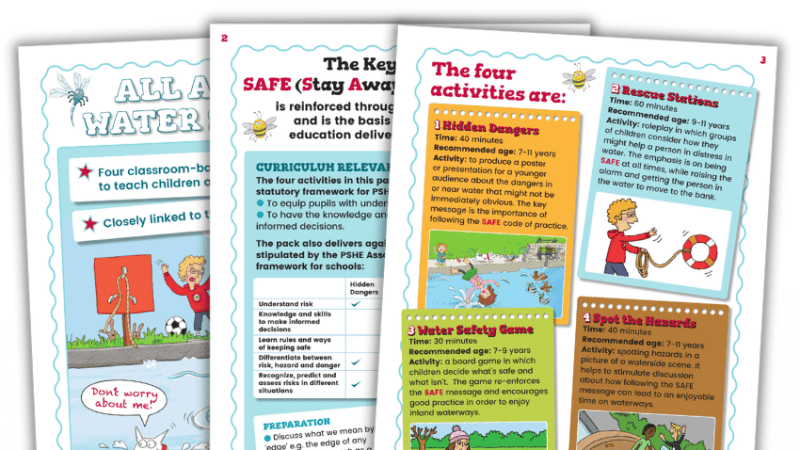Are We The Angry Teacher Mob?

Primary NQTs face a year of difficult challenges, but there are ways to lessen the workload – and we should be wary of staffrooms where negativity festers, says Julie Price Grimshaw…

I met with some newly qualified teachers a few months ago and we talked about how well their teacher training course had prepared them for life as an NQT. One said, “The course was excellent – but there’s absolutely nothing on this planet that can fully prepare you for life as a teacher.” The others smiled and agreed.
So what were the main challenges of being an NQT? “All the planning, all the marking, the relentless having to deal with stuff – grazed knees, fallings out, trying not to get too affected by the things that some of these children have to deal with outside school.”
We explored this further and they had a bit of a therapeutic moan, after which I’d intended to steer the conversation in a more positive direction. However, they quickly moved on to discuss how many of their colleagues were negative about all sorts of things – baseline testing, phonics checks, age-related expectations, the changing inspection agenda; the list went on and on. That’s when the tone of the conversation changed. Now they were talking about ‘negative staffrooms’ and various ‘angry teacher’ groups on social media.
A fine line
When I ran an initial teacher training programme I used to warn trainees that there’s a fine line between the therapeutic moan and the downward spiral. You don’t have to look very far to come across online articles with titles like, ‘I’m quitting teaching due to the unmanageable workload and unrealistic expectations.’
Workload is certainly an issue that can’t be ignored, but the irony is that this sort of thing can actually fuels further negativity and makes our problems worse rather than better. So here’s the advice that I gave.
Don’t take anything personally This is one of Don Miguel Ruiz’s ‘Four Agreements’ and I think that it’s a particularly important one for teachers.
Because teaching is such a deeply personal investment of time and effort, it can be very difficult not to take things to heart. Stroppy parents, rude children – even the odd belligerent colleague – trust me when I say it’s really not about you. Sometimes you just happen to be at the sharp end of someone else’s burdens; don’t dwell on it.
Work with colleagues to minimise burdens There’s always going to be lots of work, but there’s also good news on this front. In the past, teachers did all sorts of time-consuming things, including planning and marking in a particular way for no other reason than they thought it was what Ofsted wanted to see.
Some schools are finding it hard to leave this approach behind, but the fact is that it’s all about the impact. The recently published report ‘Eliminating unnecessary workload around marking‘ [PDF] includes some first-rate guidance.
Be kind to yourself I once visited a school where the teachers seemed to believe that their value was measured by the amount of time they spent on the premises. Jokes about sleeping bags in the staffroom were uncomfortably close to the truth. I have no idea how this culture became established, but I saw a group of very tired, worn out, unhappy staff, all of whom could tell me how many sleeps there were until the next holiday.
There was one exception. Jan spent as much time in school as she needed to and no more. She had lots of interests and things she liked to do outside school, and recognised the value of building in treats for herself. Jan knew that this helped her to enjoy her job and cope better with the stressful bits. Jan is smart. Be like Jan.
Be part of a support network Many teacher training providers run support groups for their NQTs and it’s definitely worth investing time in attending such groups. Just knowing that others are experiencing similar challenges can really help.
I eventually did manage to steer my NQTs on to more positive topics. The teachers’ faces lit up when they spoke about their pupils – things they’d said, things they’d done, the progress they’d made. In education nothing stands still, and there’ll always be stuff that drives us mad – but never forget that probably more than in any other job, you work magic on a daily basis.
Julie Price Grimshaw is a teacher, teacher trainer, and education consultant; she has taught primary and secondary, and has been involved in school inspections since 2001.
Her ebook, Self-propelled learning and effective teaching, is available now via Amazon; for more information, visit www.selfpropelledlearning.co.uk or follow @Julespg












